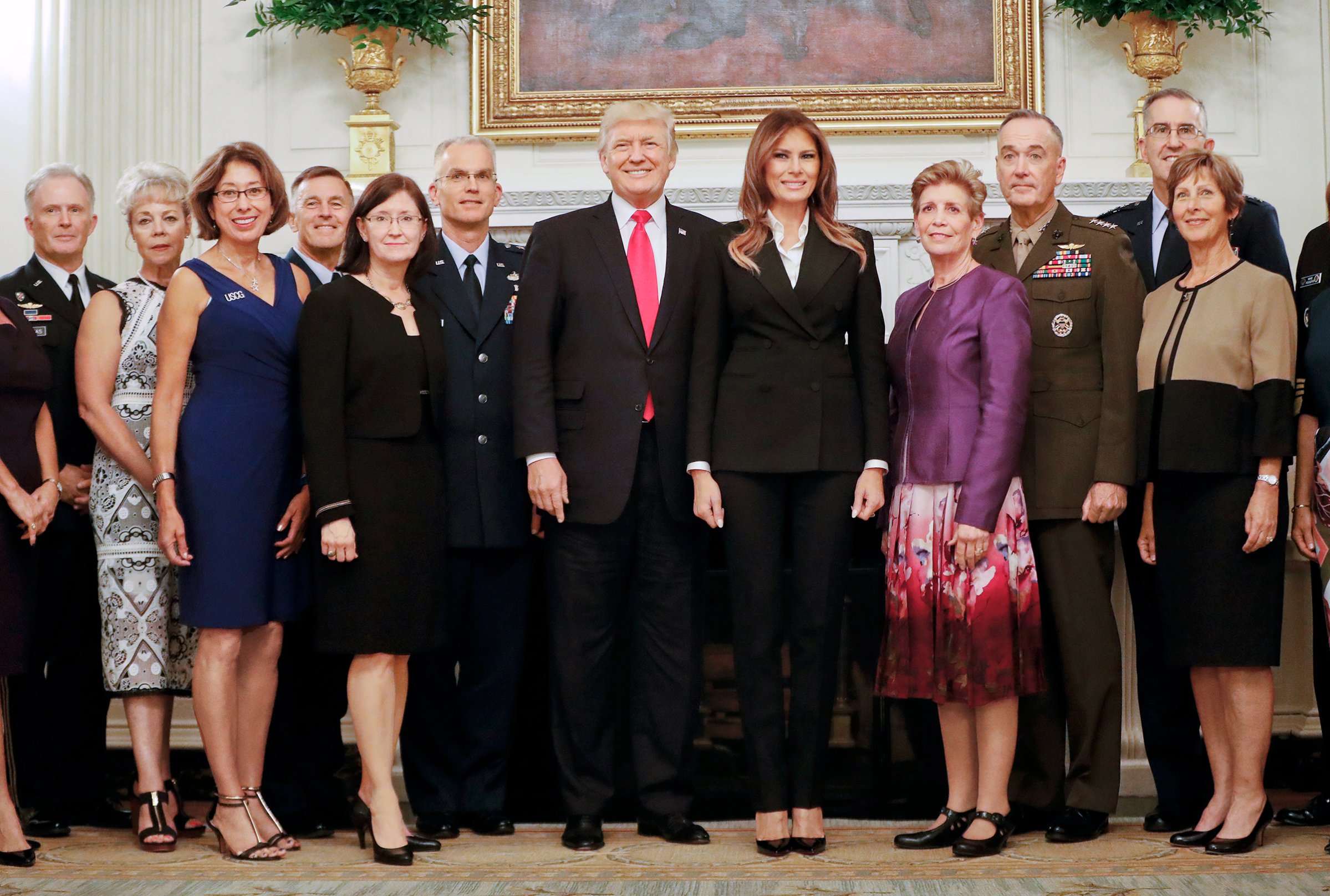
There is a glittering annual dinner at the White House that is typically exclusive to the most senior admirals and generals in the U.S. military: the Chairman and Vice Chairman of the Joint Chiefs; the service chiefs of the Army, Navy, Marine Corps, Air Force and Coast Guard; and the combatant commanders, who are the most senior four-star officers and who direct U.S. combat operations, reporting directly to the Secretary of Defense and the President. For seven years, as a combatant commander, I attended these gatherings. They were intimate and off-the-record affairs — a chance for the Commander in Chief to bond quietly and privately with his commanders.
Recently, at President Trump’s first of these dinners, it was surprising to see him use those senior officers and their spouses as a backdrop for a cryptic comment to the press: “You guys know what this represents? Maybe it’s the calm before the storm.” When asked what the “storm” was, he responded equally oddly: “You’ll find out.” Speculation ran wild. Was it a military strike on North Korea? Iran? Venezuela? The White House refused to clarify, citing a desire to keep the enemy guessing.
At an earlier meeting in the Cabinet room, Trump publicly, bluntly dressed down his admirals and generals: “Moving forward, I also expect you to provide me with a broad range of military options, when needed, at a much faster pace. I know that government bureaucracy is slow, but I am depending on you to overcome the obstacles of bureaucracy.” That kind of rebuke — in the presence of the press — is a hard moment for senior military officials who wake up every morning seeking to keep the nation safe and have worked at a record pace to keep up with a disorganized White House’s constant desire for new military options.
A few days later, well-respected Republican Senator Bob Corker of Tennessee addressed in a series of remarks another crucial role of senior military in the Administration: essentially providing psychological guardrails around the President’s impulsive and dangerous tendency to blurt out highly inflammatory statements on Twitter. Corker also upped the verbal ante by describing the collective role of General John Kelly (White House chief of staff), General James Mattis (Secretary of Defense) and Lieut. General H.R. McMaster (National Security Adviser) as running “an adult day care center.”
Then Vice President Mike Pence pulled the military even further into the political debate over NFL players’ taking a knee during the national anthem when he exited a game after several athletes undertook their planned protest. He said his reason for leaving was, in part, the fact that he and the President “stand with our soldiers.”
All of this creates an unsettling image of Trump’s relationship with the senior military. On the one hand, he clearly manifests great respect for them, and has selected a coterie of the most senior retired officers for jobs at the highest levels in the Cabinet and White House. But it seems he has a need to dominate them publicly and is trying to pull them into public political debates in ways that will be increasingly uncomfortable for them. He continues to tweet in a jingoistic and militaristic way, effectively swaggering on the global and domestic stage with the cudgel of U.S. military prowess — inflaming already fraught situations and placing him in conflict with the steady advice from his generals, whose operational competence, loyalty to the nation and apolitical approach are thus far unquestioned.
These admirals and generals swear an oath to “support and defend the Constitution of the United States.” That is the bedrock for every one of these active and retired officers: serve the nation and avoid the partisan crosswinds. But the ground is slipping under them. Trump is like a hurricane: unpredictable, potentially destructive and endowed with enormous power. Thankfully, our military can stand as a kind of bulwark against his darker angels, but only up to a point. In the end, these officers will obey his lawful orders.
We must hope he will listen to his military counsel, while insulating them from the partisan bickering that is so endemic in our Republic. Meanwhile, the senior military must avoid the politics of the moment and, in private, continue to speak truth to power in the most direct and meaningful ways.
More Must-Reads from TIME
- Donald Trump Is TIME's 2024 Person of the Year
- Why We Chose Trump as Person of the Year
- Is Intermittent Fasting Good or Bad for You?
- The 100 Must-Read Books of 2024
- The 20 Best Christmas TV Episodes
- Column: If Optimism Feels Ridiculous Now, Try Hope
- The Future of Climate Action Is Trade Policy
- Merle Bombardieri Is Helping People Make the Baby Decision
Contact us at letters@time.com